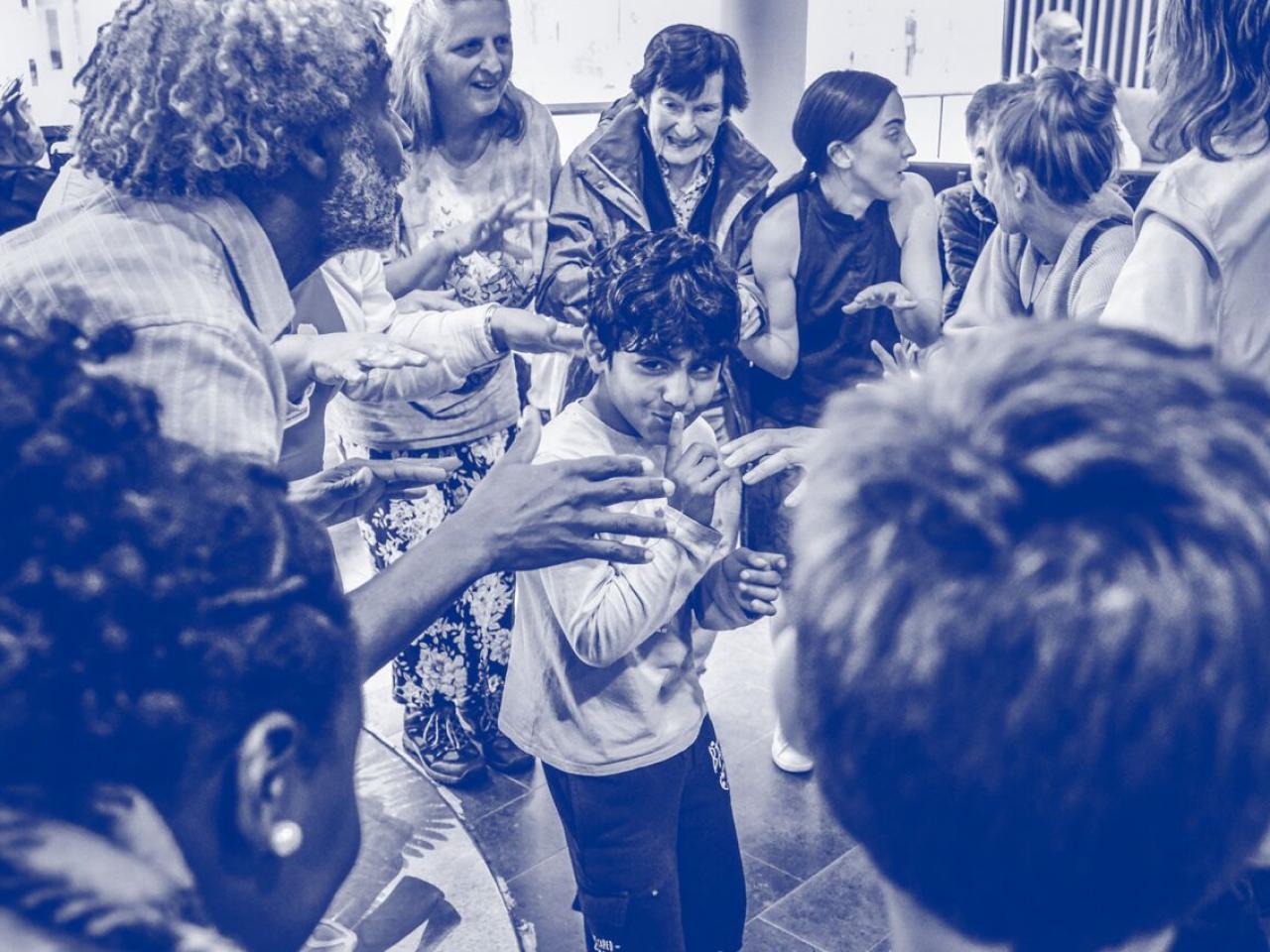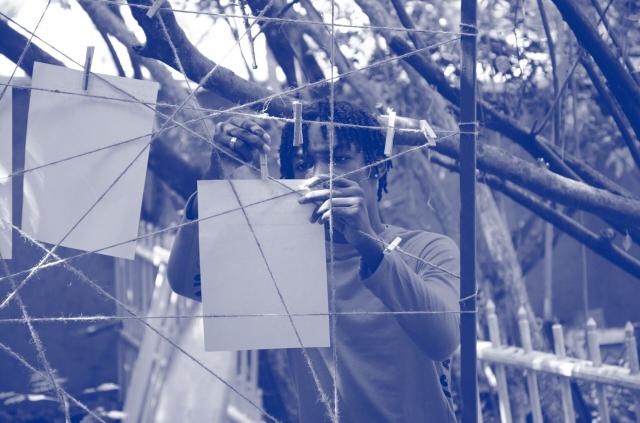 Project Living in Your Neighborhood. Photographer: Lambert de Jong
Project Living in Your Neighborhood. Photographer: Lambert de Jong
Co-creation – Communities
With this grant, the Fund supports intangible cultural heritage and cultural heritage projects that are prepared and implemented by or together with a community. The projects make a positive contribution to a societal challenge.
Please note:
You can apply for this grant from 12 January at 13:00 in the Netherlands and 8:00 in the Caribbean part of the Kingdom. We will process applications in order of receipt, until the budget is exhausted.
In brief
The grant scheme Co-creation – Communities is intended to support cultural heritage practice by and with communities. It is important that a joint activity – participation – is genuinely involved. Consider things like performing or passing on a craft, customs, traditions or rituals. Such as certain forms of music and dance, storytelling and the processing of fabrics. From Dabke dance evenings or basket weaving to Winti theatre concerts. It is not necessary for the cultural heritage to be on an official list or to have been 'approved' as cultural heritage by others. As long as it is of value to the community and to society, and you clearly explain to us why.
The important thing is that members of the community experience the activity (the expressions of culture, new or from the past) as cultural heritage. They should derive a sense of identity from this cultural heritage and find it important to pass it on to others, within or outside the community.
International collaboration
Communities, cultural organisations and cultural professionals who apply for a grant must be established in the Kingdom of the Netherlands. They can collaborate with a community, organisation or professional from another country for the project, as long as the results of the project benefit society in the Kingdom.
Examples
Example 1: A group of Dutch-Syrian women applies for a grant to share their traditional embroidery techniques with others. Teaching and passing on this craft method contributes to connectedness (social cohesion) and a smaller CO2 footprint (climate challenge).
Example 2: A fishermen's choir, which specialises in local songs from Walcheren, applies for a grant to create a modern sea shanty. For this purpose, the choir collaborates with a Zeeland composer. Learning and reviving these songs contributes to connectedness (social cohesion) and making cultural heritage accessible.
Example 3: A group of queer young people applies for a grant to create a creative self-portrait, inspired by a queer icon from history. Young people choose their own favourite coaches in the fields of photography, styling and creating an exhibition. They work towards a final exhibition in the local library.
Within the cultural heritage project, the community can also apply for a grant to improve their own skills or increase their knowledge. For example, a course in learning to maintain a windmill or a masterclass by an (international) coach in Afro-Caribbean dance.
You can find more examples on the page Our projects (in Dutch). For example, take a look at the schemes Making Cultural Heritage, Cultural Heritage: Slavery History Commemoration Year, or Making Culture Together: Open Call Culture in the Neighbourhood.
What is the scheme not intended for?
- A professional who sets up a project for a community, without the community having asked for this or needing it. We only support projects that meet the community's needs. The community must be involved in the preparation and implementation of the project.
- A museum that creates an exhibition about a community, but does not or hardly involves the community in the preparation and implementation of the project. We only support projects in which the community participates in the preparation and implementation of the activity.
- A company that organises a public event and asks a community to show or do something, without further involving the community in the project. We only support projects in which the community participates in the preparation and implementation, and which meet a need of the community.
- A shopkeepers' association that organises an open day or street market to attract new customers in the neighbourhood. Here, there is an economic interest, not cultural heritage practice.
- An institution applies for a grant for an educational cultural heritage project at a vocational education college. With the Co-creation – Communities scheme, we support projects that take place outside school hours and that are conceived and implemented by or with a community (co-creation). Participants take part in the activity outside school or working hours. Applications for culture and cultural heritage education (during school hours) can be submitted under other schemes.
Frequently asked questions
As far as the Fund is concerned, a community is a group of people who feel connected to each other through a shared culture, interests, origin or background. A group that shares traditions, customs and rituals together or keeps (intangible) cultural heritage alive. For example, by collecting or passing on knowledge about a shared past and the impact of this past in the present.
Members of a community trust each other, collaborate naturally and share knowledge and experience. A community does not need to be formally organised or have existed for a long time. A community can, for example, be based on (or consist of) an ethnic group, a subculture, regional group or a cultural heritage community.
A societal challenge is a complex issue or complex challenge in society. The answer or solution cannot come from one person, organisation or sector; collaboration is needed. A contribution to a societal challenge can be large or small. Examples of societal challenges are: more togetherness in the neighbourhood, safety on the streets, the disappearance of crafts and traditions, the consequences of digitalisation or climate change.
Communities scheme is part of Co-creation
The Communities grant scheme is part of the Co-creation programme line. In this programme line, special attention is paid to connection and collaboration when participating in culture. With the project schemes, the Fund supports collaboration between organisations and their participants (Co-creation – Institutions - in Dutch); collaboration between cultural institutions and organisations from other sectors (Co-creation – Collaborating on Culture - in Dutch); and collaboration within communities (Co-creation – Communities). The information on these pages is in Dutch. Equality is an important condition. This means that people, groups and organisations utilise each other's knowledge and experience, learn from each other, and that the roles and tasks for implementing a project are well distributed.
Not sure whether this grant is for you?
Are you not sure whether your project fits this grant? Or do you have questions? Join the information session on Tuesday 9 December from 16:00 to 16:45 in the Netherlands and from 11:00 to 11:45 in the Caribbean part of the Kingdom. Or contact one of our advisers. You will find their contact details on the right-hand side of this page. You can also email your question to cocreatie@cultuurparticipatie.nl.


